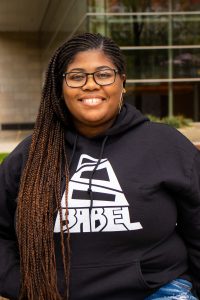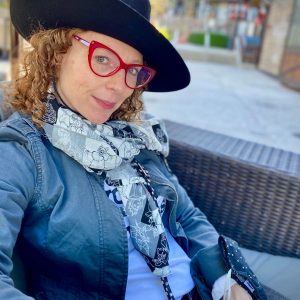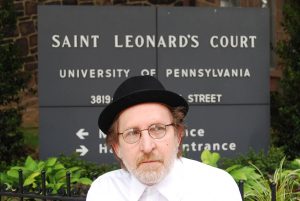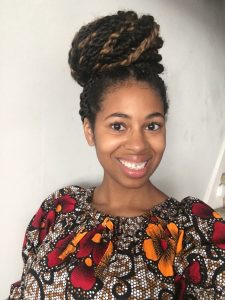
She bent slowly, grabbin the damp
bedsheet from the laundry basket.
then stood, arms stretched
so nothin touched the ground.
Mama snapped the sheet in the
wind to scare the wrinkles out,
took the splinterin clothespin and
stuck it on the thin line runnin
cross the parkin lot. all our stuff
danced on display but the drawers.
We headed back to the basement to
wash the next load and she watched
me run behind her, her brown eyes
soft and laughin. this time, Mama
let me hold the quarters and the
whole buildin could hear me.
skippin and jinglin.
Edythe Rodriguez is a Philly-based poet who studied Africology and creative writing at Temple University. She loves neo-soul, battle rap, and long walks through old poetry journals. She has received fellowships from The Watering Hole, Brooklyn Poets, and Palm Beach Poetry Festival. Her work is a call for aggressive healing and is published in Obsidian, Sonku, Call and Response Journal and Bayou Magazine.


